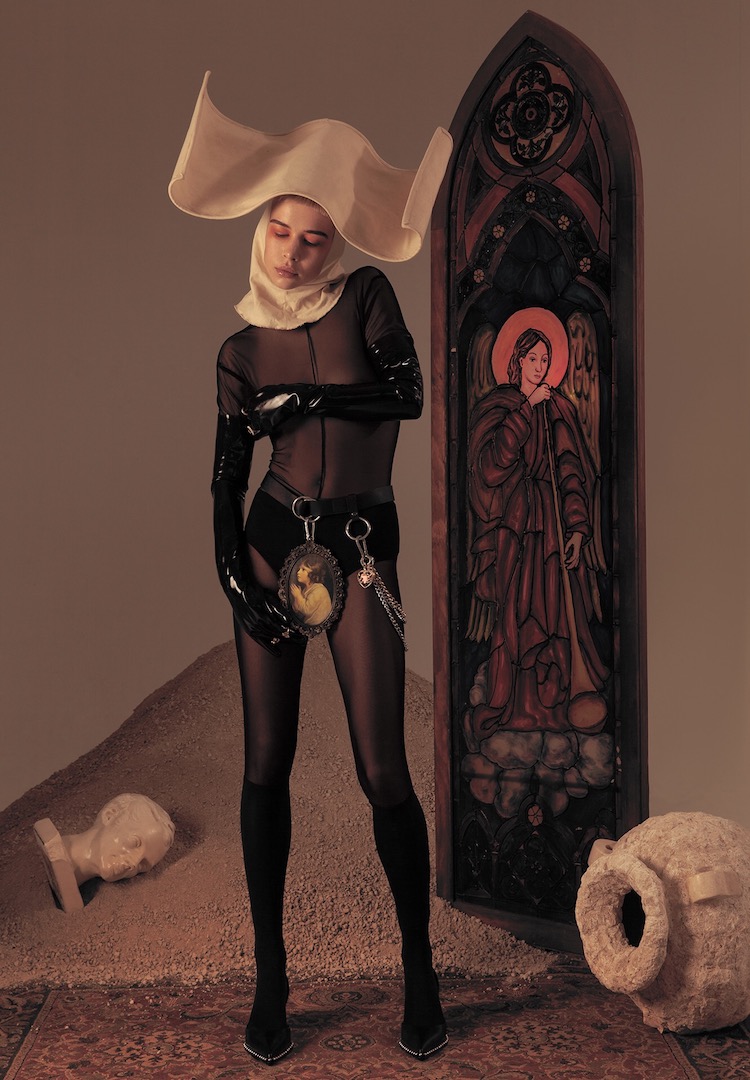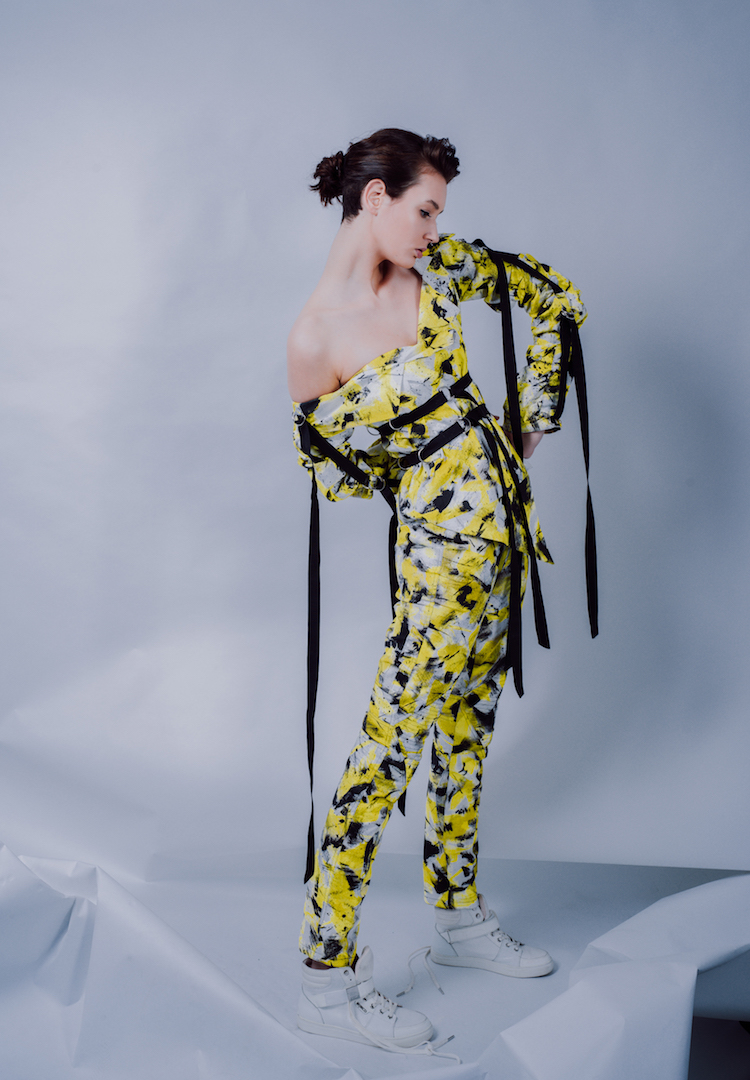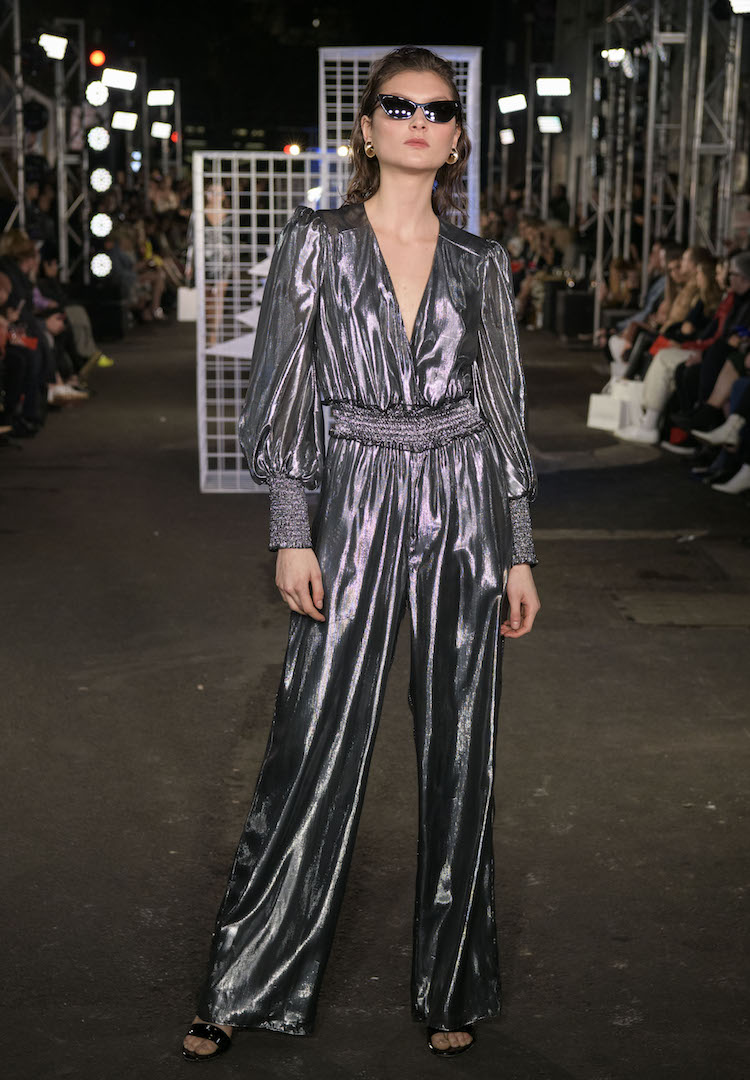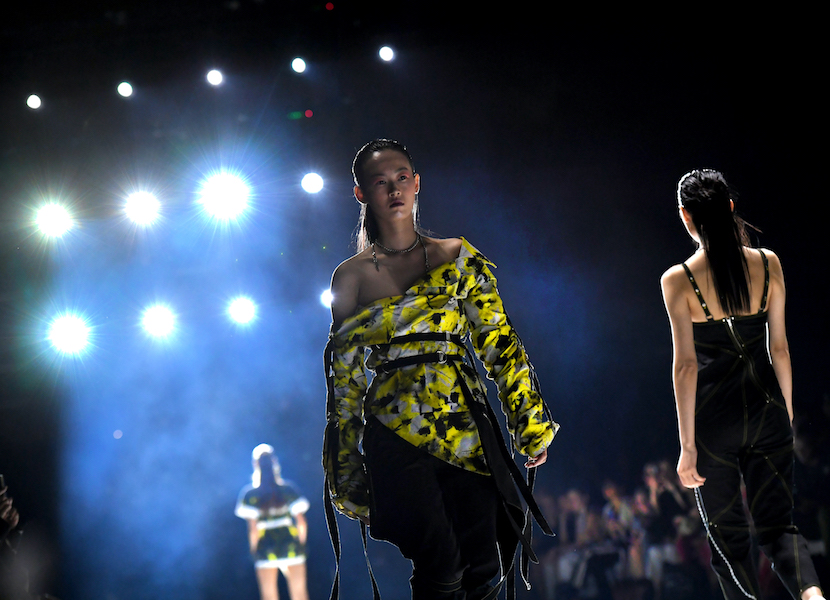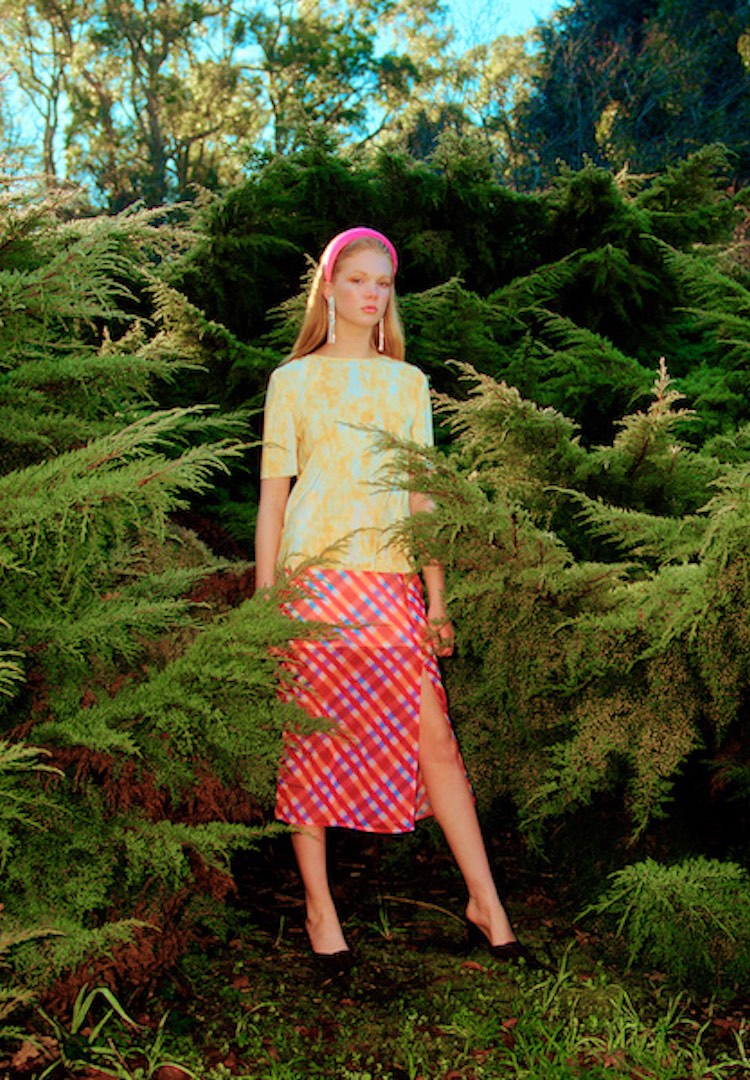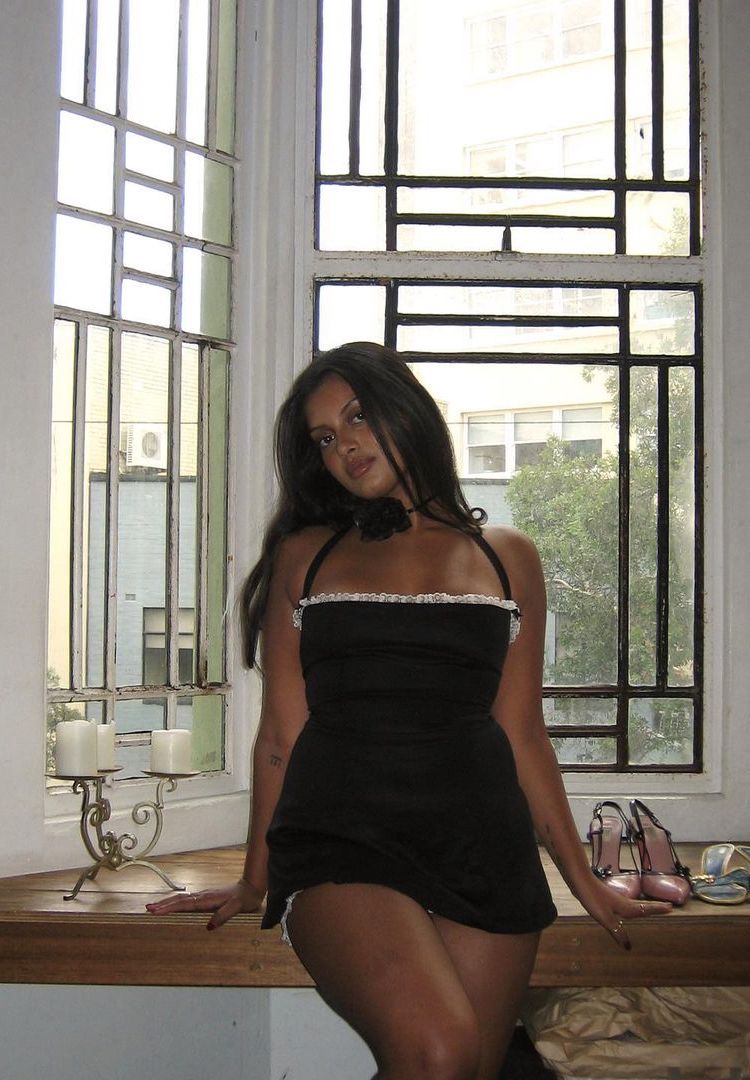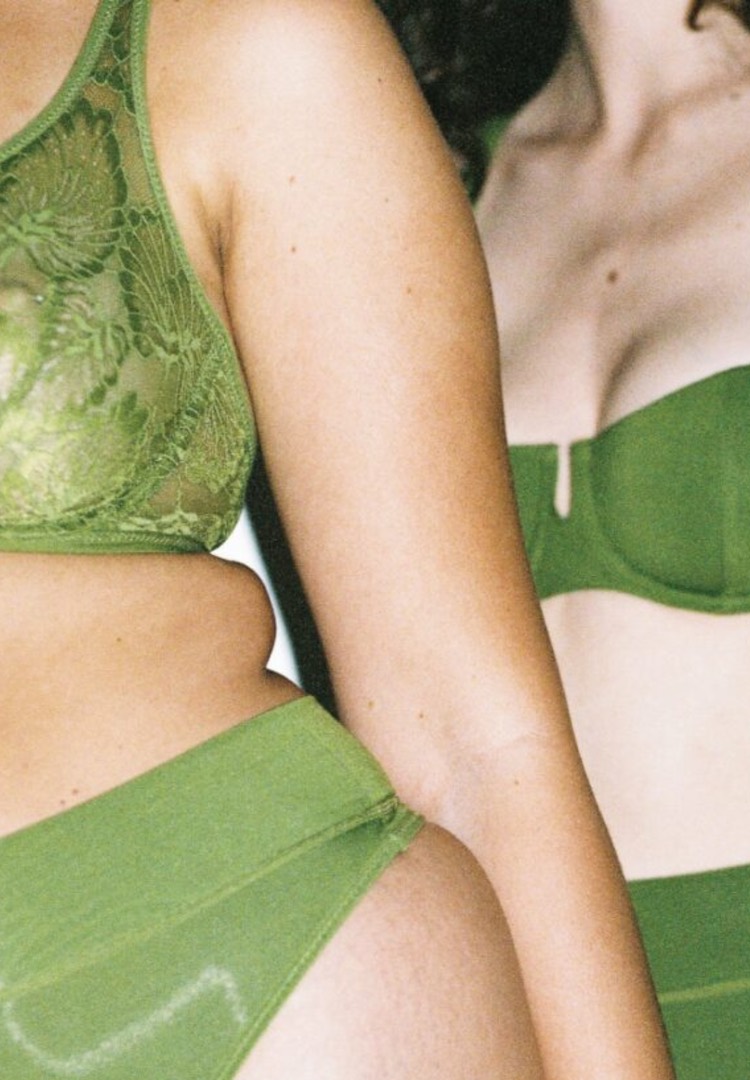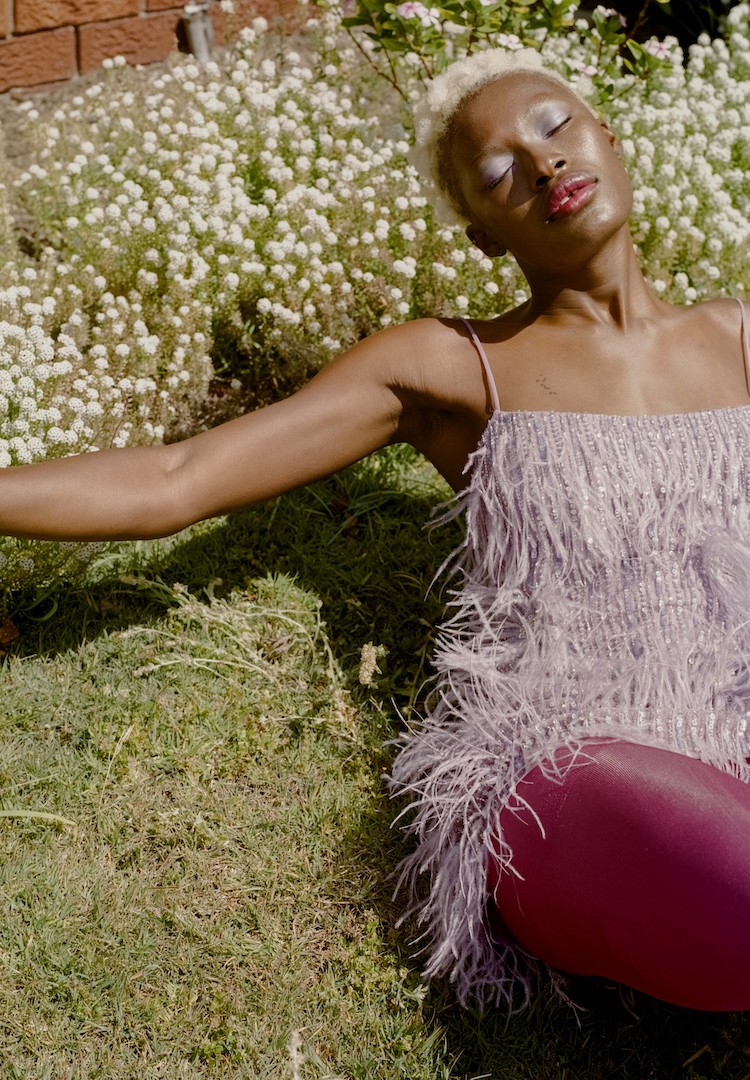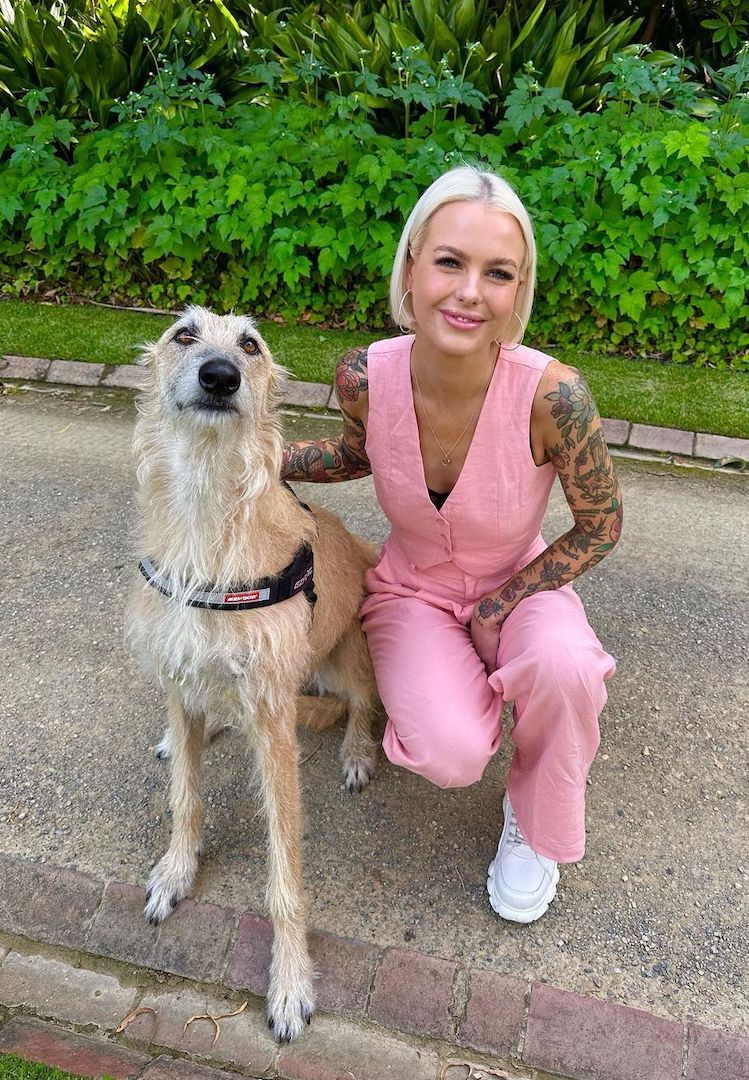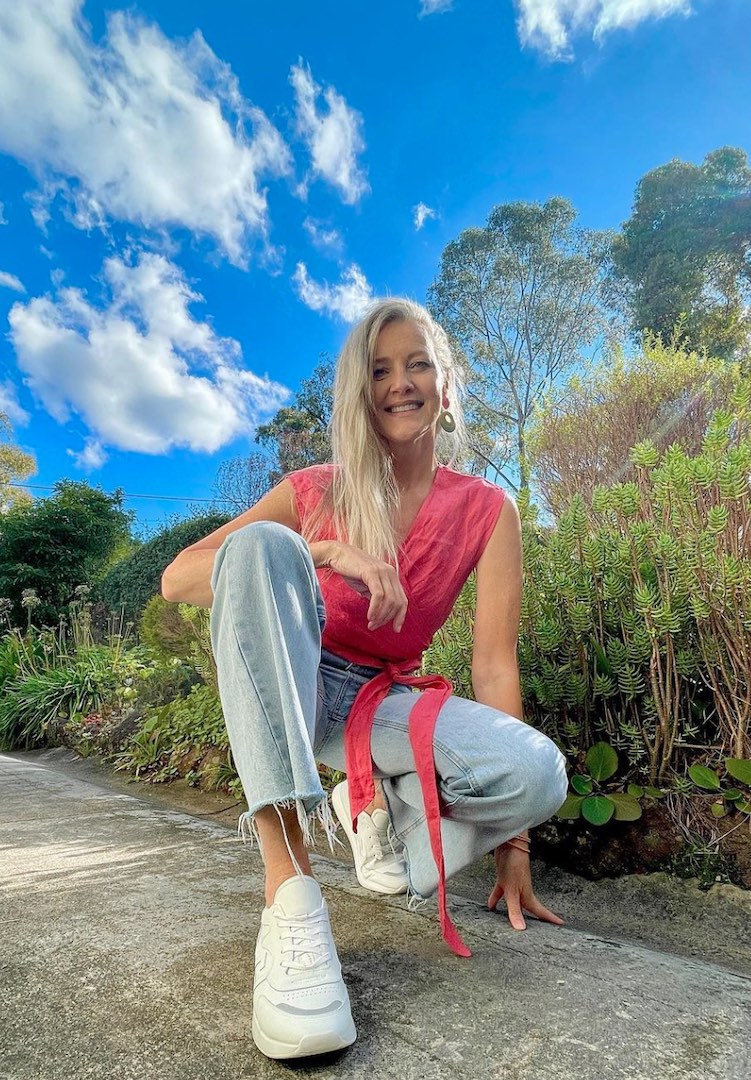Breakout designer Tess Whitfort uses biodegradable elastic and memes to power her zero waste collections
Words by Mariah Papadopoulos
“I want people to think about the solutions.”
This time last year, Tess Whitfort was virtually unknown.
A graduate fresh from Box Hill Institute, she had been chosen as a finalist for the Redress Design Awards and was preparing a collection to show at the ceremony in Hong Kong.
By September 7, she had won Redress, and three days later, Vogue Australia published a story on her work. Now, she’s preparing to launch the debut collection of her very own label at Melbourne Fashion Week.
In the last year, the young Australian designer has been busy. Not only has she built her own label, Pendulum Studios, from scratch but she has done so with an ethical, zero-waste design strategy.
“Usually when a garment is cut conventionally, it wastes about 15% of the fabric, so zero waste uses 100% of the fabric,” she explains.
She credits her time at Melbourne’s Box Hill Institute for her introduction to zero-waste design.
“In the last year of our degree we had a class that was dedicated to sustainability, and that’s where I first did zero-waste pattern cutting.”
Since then, she’s created something of an unprecedented combination – edgy, unapologetic streetwear, synthesised with ethical, environmentally friendly design.
“I want to make sustainable fashion that’s a bit different to what’s often seen within the sector. It’s often quite wholesome, natural kind of styles. There’s a specific style that’s associated with sustainability.”
But for sustainability, Whitfort’s work has little common ground with the floaty, earth-mother vibe of other ethical brands.
“[There is] a lot of linen sack dresses, taupe, and all that sort of stuff. That’s fine, there are lots of people that love that and it can look great, but it’s not for everyone.”
Her philosophy is all about broadening the market for ethical clothing beyond the minimalist niche.
“If we really want to make sustainability applicable to all aspects of the fashion industry we need that variety,” she says. “It needs to be for everyone, and there needs to be something for everyone within it.”
Likewise, ethical design isn’t just a way to market her pieces, it’s a lifeline running through the entirety of her work.
“For me, sustainability has to apply to every aspect of the brand and the business. So it’s not just like my patterns are zero-waste, or my fabrics are sustainable.”
The materials she uses reflect this ethos across the board.
“I’ve got 100% Tencel organic threads, I’ve got some biodegradable elastic, which is really cool. All my interlinings are non-fusible, 100% cotton so that they’re biodegradable as well. All my packaging is compostable and I try to reduce single use plastic.”
And if all of that wasn’t enough, Whitfort is also working with Carbon Neutral Australia on their Plant A Tree initiative.
“For every order, we can donate a certain amount of the profit and they will plant a tree. It’s also a part of offsetting the carbon footprint of the business.”
Whitfort’s efforts come in the face of looming climate disaster.
“I want people to be really excited about the solutions. I think at the moment things are sort of looking a bit dire,” she says. “If I can get people excited about the solutions, then that hopefully would make people feel a little bit better, and would be really motivating to make a positive difference.”
She counts humour as an important mechanism for coping with serious issues, from climate change to politics. On the Instagram account she runs for Pendulum Studios, she reposts memes satirising climate deniers and other political debacles.
“Humour is very important to me, and I think it can be really powerful, and people are more likely to engage with something if it’s humorous. That’s why political comedy is so effective.”
From the beginning, Whitfort’s work has been full of meaning. Her first collection for the R Collective, a label by environmental NGO Redress, was called Avoidance. The story behind this name goes beyond just avoiding waste.
“I often talk about mental health and I think it’s really important to talk about it in a public forum. Anxiety is something that I’ve always struggled with, and avoidance has kind of been my main coping mechanism,” she says. “Calling the collection Avoidance felt quite cathartic in that sense.”
For Pendulum Studios’ first collection, she’s focusing on taking zero-waste pattern-cutting as far as she can.
“In most of my styles, I’ve got a full-size range now. I’ve got five sizes, which I’m quite pleased with because it’s always been a really big sticking point with zero-waste pattern cutting. You can make one style but then when you want to make it in multiple sizes it then becomes really difficult.”
Ahead of the launch of Pendulum Studios at Melbourne Fashion Week, Whitfort is giving a talk about Sustainable Design Thinking on August 29.

